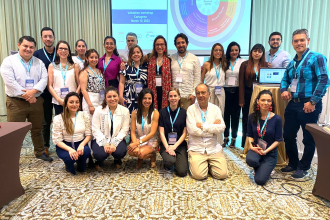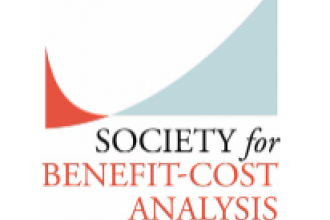
Sustainable fishing is threatened by collusion
Overfishing or the misuse of open marine resources can cause them to collapse. To cope with this problem, many governments restrict access to fishing grounds. However, corrupt practices hamper the…


Overfishing or the misuse of open marine resources can cause them to collapse. To cope with this problem, many governments restrict access to fishing grounds. However, corrupt practices hamper the…
Please join us at this EEU seminar with Tommy Lundgren from Swedish University of Agricultural Sciences. Lundgren is a Professor of Resource Economics and Director of the Centre of Environmental &…

60 researchers from EfD and partner organizations have been working intensely for a year and a half to develop a research agenda to support a low-carbon transition and gender equity in the Global…

The Society for Benefit-Cost Analysis professional development workshop, “ Benefit-Cost Analysis for Beginners” will be held on April 28, 2023. This promises to be a terrific workshop! The instructors…
Increasing strategic and large-scale investments in low-and middle-income countries are required to ensure a just, equitable, and predictable low-carbon transition. Mobilizing Climate Investment Models is part of a larger initiative to identify the most promising research issues to support an actionable low-carbon transition in the Global South.
Sustainable Energy Transitions, with emphasis on gendered and intersectional aspects, lies at the core of a low carbon society. The implications of energy interventions, policies, and transitions is part of a larger initiative to identify the most promising research issues to support an actionable low-carbon transition in the Global South. Aim: There is an urgent need to identify ways to overcome the challenges to inclusive and sustainable energy access in developing countries, so that a low-carbon transition will improve outcomes for women, youth, and other marginalized populations.
Infrastructure, both hard (Transport) and soft (Digital), are considered catalysts of economic growth. The provision for low-carbon infrastructure, in light of public-private partnerships, is part of a larger initiative to identify the most promising research issues to support an actionable low-carbon transition in the Global South.
Assessment of individual, organizational, and institutional capacities is important to accelerate the pace of transition to a low-carbon economy. Human and Institutional Capacity is part of a larger initiative to identify the most promising research issues to support an actionable low-carbon transition in the Global South.
Identifying policies and the corresponding actors, processes, and methods that enable the creation of a policy environment are important to put climate and low-carbon energy transition policies in motion.
Enabling Policy Environment is part of a larger initiative to identify the most promising research issues to support an actionable low-carbon transition in the Global South.